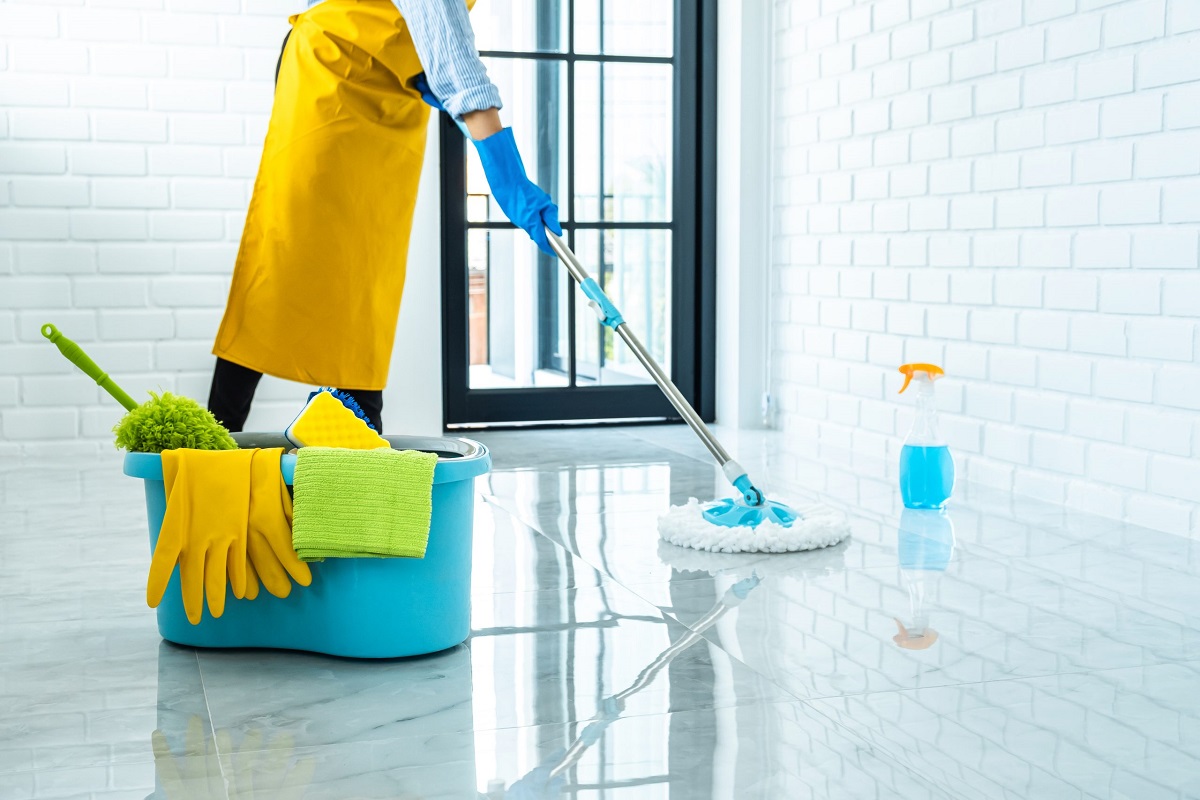

Articles
How To Clean Epoxy Floor
Modified: March 24, 2024
Learn the best techniques and tips for article cleaning to keep your epoxy floor looking pristine. Expert advice on maintaining the shine and durability of your articles.
(Many of the links in this article redirect to a specific reviewed product. Your purchase of these products through affiliate links helps to generate commission for Storables.com, at no extra cost. Learn more)
Introduction
Having epoxy floors can be a beautiful addition to any space. Not only do they provide a sleek and polished look, but they are also incredibly durable and resistant to stains and damage. However, to keep your epoxy floors looking their best and to maximize their longevity, regular cleaning and maintenance are essential.
Cleaning epoxy floors may seem like a daunting task, but with the right techniques and materials, it can be a straightforward process. In this article, we will provide you with a comprehensive guide on how to clean epoxy floors effectively.
Before we dive into the cleaning process, it’s important to understand a few considerations. Firstly, the method and frequency of cleaning will depend on the amount of foot traffic and the type of contaminants your epoxy floors are exposed to. For example, a commercial space with heavy foot traffic will require more frequent cleaning compared to a residential garage.
Additionally, it’s crucial to use the correct cleaning products and techniques to avoid damaging the epoxy surface. Using harsh chemicals or abrasive tools can cause scratches or discoloration. Therefore, it’s essential to follow the manufacturer’s instructions and recommendations for cleaning and maintenance.
In the next sections, we will provide you with a step-by-step guide on how to clean epoxy floors, including the necessary materials and equipment. We will also share tips on removing tough stains and offer advice on maintaining and caring for your epoxy floors to keep them in pristine condition for years to come.
Whether you have epoxy floors in your home, office, or commercial space, this article will equip you with the knowledge and skills to maintain the cleanliness and appearance of your epoxy floors, ensuring they continue to impress visitors and enhance the overall aesthetic of your space.
Key Takeaways:
- Regular cleaning and maintenance are essential for preserving the beauty and longevity of epoxy floors. Following manufacturer’s instructions, using gentle cleaning tools, and addressing tough stains promptly are key to effective maintenance.
- Whether opting for DIY cleaning or professional services, understanding the specific needs of epoxy floors is crucial. Regular sweeping, prompt spill cleanup, and avoiding harsh chemicals and abrasive tools are vital for maintaining pristine epoxy floors.
Read more: How To Epoxy A Floor
Important Considerations Before Cleaning Epoxy Floors
Before diving into the cleaning process, there are a few important considerations to keep in mind to ensure effective and safe cleaning of your epoxy floors.
- Read manufacturer’s instructions: Every epoxy floor installation may have specific cleaning and maintenance requirements. It is crucial to read and follow the manufacturer’s instructions to avoid damaging the epoxy surface.
- Assess the condition of the floor: Before starting the cleaning process, examine the epoxy floor for any visible damages, cracks, or loose areas. If you notice any issues, it’s important to address them before cleaning to prevent further damage.
- Identify the type of contaminants: Understanding the types of contaminants on your epoxy floors can help you choose the appropriate cleaning method and products. Common contaminants include dirt, dust, spills, grease, oil, and stains from chemicals or food.
- Safety precautions: Keep safety in mind when cleaning epoxy floors. Ensure good ventilation in the area, wear appropriate protective gear such as gloves and goggles, and be cautious of slippery surfaces after cleaning.
- Test cleaning products: Before using any cleaning solution on the entire floor, it’s advisable to test it in a small, inconspicuous area to ensure it doesn’t cause any adverse effects, such as discoloration or damage.
- Avoid using harsh chemicals: Harsh chemicals, including bleach, ammonia, and acidic cleaners, can damage the epoxy surface. Opt for mild, pH-neutral cleaners specifically designed for epoxy floors to maintain their shine and integrity.
- Use gentle cleaning tools: When cleaning epoxy floors, avoid using abrasive tools such as steel wool or hard-bristle brushes, as they can scratch or dull the surface. Instead, opt for soft microfiber mops or cloths that effectively trap dirt and debris without causing damage.
- Maintain regular cleaning routine: Consistency is key when it comes to maintaining epoxy floors. Set up a regular cleaning schedule to prevent the buildup of dirt and debris, which can make cleaning more challenging in the long run.
By keeping these considerations in mind, you can ensure that you approach the cleaning process with the right knowledge and tools, maximizing the effectiveness of your cleaning efforts while preserving the integrity of your epoxy floors.
Materials and Equipment Needed
Before you start cleaning your epoxy floors, gather the necessary materials and equipment to ensure a smooth and efficient cleaning process. Here are the essential items you will need:
- Broom or dust mop: A broom or a dust mop is essential for removing loose dirt, dust, and debris from the surface of the epoxy floors. This initial step helps prevent scratching of the surface during the cleaning process.
- Vacuum cleaner: If your epoxy floors have tight corners or hard-to-reach areas, using a vacuum cleaner with a soft brush attachment can be helpful in removing stubborn dirt and dust.
- pH-neutral epoxy floor cleaner: Choose a mild, pH-neutral cleaner specifically designed for epoxy floors. Avoid using harsh chemicals, ammonia, or bleach, as they can damage the epoxy surface. Read the manufacturer’s instructions to ensure the cleaner is safe and suitable for your epoxy floor.
- Bucket: A bucket is needed to mix the cleaning solution and carry it around while cleaning. Opt for a sturdy bucket with a capacity that suits your cleaning needs.
- Microfiber mop or soft cloth: Microfiber mops or soft cloths are excellent choices for cleaning epoxy floors. They effectively trap dirt and debris without scratching or damaging the surface. Choose a mop or cloth with a large enough size to cover the surface area efficiently.
- Scrub brush: If you encounter stubborn stains or specific areas that require extra attention, having a soft-bristle scrub brush can help. Ensure the bristles are gentle enough not to cause damage to the epoxy surface.
- Squeegee: A squeegee is useful for removing excess water or cleaning solution from the epoxy floor. It helps prevent water spots and streaks during the drying process.
- Soft towels or microfiber cloths: Soft towels or microfiber cloths are essential for drying the epoxy floor after cleaning. They absorb moisture effectively and leave the surface streak-free.
- Protective gear: When cleaning epoxy floors, it’s important to prioritize safety. Wear protective gear such as gloves and goggles to protect your hands and eyes from any potential hazards.
Having these materials and equipment readily available before you start cleaning will make the process more efficient and ensure you have everything you need to tackle any dirt or stains on your epoxy floors.
Step-by-Step Guide to Cleaning Epoxy Floors
Now that you have gathered the necessary materials and equipment, let’s walk through the step-by-step process of cleaning your epoxy floors:
- Sweep or dust mop: Begin by sweeping or using a dust mop to remove loose dirt, dust, and debris from the surface of the epoxy floors. This helps prevent scratching during the cleaning process.
- Prepare the cleaning solution: Mix a mild, pH-neutral epoxy floor cleaner with water in a bucket according to the manufacturer’s instructions. Avoid using harsh chemicals or cleaners that can damage the epoxy surface.
- Apply the cleaning solution: Dip a microfiber mop or soft cloth into the cleaning solution and wring out any excess liquid. Then, gently mop the epoxy floor using smooth, overlapping strokes. Avoid using excessive water, as it can seep into the seams and edges of the epoxy, causing potential damage.
- Focusing on stubborn stains: For any stubborn stains or heavily soiled areas, use a soft-bristle scrub brush to gently scrub the surface. Be careful not to apply excessive pressure, as it can cause damage to the epoxy. Rinse the brush frequently and continue scrubbing until the stain is removed.
- Remove excess water or cleaning solution: Use a squeegee to remove any excess water or cleaning solution from the floor. Starting from one end, push the squeegee across the epoxy surface, collecting the water or solution and directing it into a suitable container.
- Dry the floor: To prevent water spots or streaks, use soft towels or microfiber cloths to dry the epoxy floor thoroughly. Ensure all moisture is removed from the surface before allowing foot traffic or placing any objects back on the floor.
- Inspect for any missed spots: After the floor is dry, inspect the entire surface for any missed spots or remaining dirt or stains. If necessary, repeat the cleaning process in the specific areas until the desired level of cleanliness is achieved.
- Dispose of the cleaning solution: Dispose of the used cleaning solution according to local regulations. Do not pour it down the drain unless it is safe to do so and complies with environmental guidelines.
By following these step-by-step instructions, you can effectively clean your epoxy floors and restore their shine and cleanliness. Remember to always refer to the manufacturer’s guidelines for specific cleaning recommendations and to maintain the longevity of your epoxy floors.
Removing Tough Stains from Epoxy Floors
Epoxy floors are known for their durability and resistance to stains, but occasionally, tough stains may still occur. Here are some tips on how to remove tough stains from epoxy floors:
- Act quickly: The key to successfully removing tough stains from epoxy floors is to act as soon as the spill or stain happens. The longer a stain sits, the more difficult it can be to remove.
- Identify the stain: Different types of stains require different cleaning techniques. Identify the type of stain you are dealing with, such as oil, grease, food, chemicals, or other substances. This will help you choose the appropriate cleaning method.
- Blot or wipe up the stain: If the stain is still wet, use a clean cloth or paper towel to blot or wipe up as much of the stain as possible. Be careful not to spread the stain further or push it deeper into the epoxy surface.
- Use a gentle cleaner: To remove tough stains from epoxy floors, opt for a mild, pH-neutral cleaner specifically designed for epoxy surfaces. Apply the cleaner directly to the stained area and let it sit for a few minutes to penetrate the stain.
- Gently scrub the stain: After allowing the cleaner to sit, use a soft-bristle scrub brush to gently scrub the stained area. Apply gentle pressure and use circular motions to avoid causing any damage to the epoxy surface. Rinse the brush frequently and continue scrubbing until the stain begins to lift.
- Rinse with clean water: Once the stain is removed or significantly lightened, rinse the area with clean water. Use a mop or clean cloth to remove any residue from the cleaning solution and ensure the floor is thoroughly rinsed.
- Dry the floor: After rinsing, use soft towels or microfiber cloths to dry the epoxy floor completely. Ensure all moisture is removed to prevent any water spots or streaks from forming.
- Repeat if necessary: In some cases, tough stains may require multiple cleaning attempts. If the stain remains after the initial cleaning, repeat the process until the stain is fully removed. Be patient and persistent, but avoid using abrasive tools or harsh chemicals that can damage the epoxy surface.
If you encounter particularly stubborn stains that are difficult to remove, it may be beneficial to seek professional assistance to avoid causing any damage to the epoxy. Professional cleaners have access to specialized equipment and products that can effectively remove tough stains while protecting the epoxy surface.
By following these steps and using the appropriate cleaning techniques, you can effectively remove tough stains from your epoxy floors and restore their pristine appearance.
Use a soft-bristle broom or a dust mop to regularly sweep the epoxy floor and remove any loose dirt or debris. This will prevent scratches and maintain the floor’s shine.
Read more: What Is An Epoxy Floor
Maintaining and Caring for Epoxy Floors
To ensure the longevity and beauty of your epoxy floors, regular maintenance and proper care are essential. Here are some tips to help you maintain and care for your epoxy floors:
- Sweep or dust mop regularly: Regular sweeping or dust mopping is crucial to remove dirt, dust, and debris that can accumulate on the surface of your epoxy floors. This prevents scratches and keeps the floors looking clean and polished.
- Use a soft-bristle broom or mop: When cleaning epoxy floors, use a soft-bristle broom or a microfiber mop to avoid scratching or damaging the surface. Hard bristles or rough materials can cause abrasions and reduce the shine of your epoxy floor.
- Wipe up spills immediately: Promptly wipe up any spills or stains on your epoxy floors to prevent them from seeping into the surface and causing stains or discoloration. Use a clean cloth or paper towel to blot or gently wipe the affected area.
- Use a pH-neutral cleaner: To clean your epoxy floors regularly, opt for a pH-neutral epoxy floor cleaner. Avoid using harsh chemicals, ammonia, bleach, or acidic cleaners, as they can damage the epoxy surface. Follow the manufacturer’s instructions for the cleaner and dilute it as recommended.
- Avoid using abrasive cleaning tools: Scrub brushes with stiff bristles, steel wool, or abrasive pads should be avoided when cleaning epoxy floors, as they can scratch or dull the surface. Stick to soft cloths, microfiber mops, or soft-bristle brushes for gentle and effective cleaning.
- Prevent heavy or sharp objects: Avoid dragging heavy furniture or sharp objects directly on your epoxy floors, as they can cause scratches or indentations. Use furniture pads or gliders to protect the floor when moving or rearranging furniture.
- Place doormats or rugs at entryways: Placing doormats or rugs at entryways can help reduce the amount of dirt and debris brought into your space, protecting your epoxy floors from potential scratches and stains. Clean and shake out the mats regularly to prevent the accumulation of dirt.
- Minimize exposure to direct sunlight: Prolonged exposure to direct sunlight can cause fading or discoloration on epoxy floors. Use curtains, blinds, or window film to minimize the amount of direct sunlight reaching your floors. If possible, consider using UV-blocking coatings on your windows.
- Regularly inspect and address any damages: Periodically check your epoxy floors for any damages, such as cracks or chipped areas. Address them promptly by following the manufacturer’s recommendations or seeking professional assistance. Ignoring or delaying repairs can lead to further damage and deterioration.
- Apply a protective coating: Applying a protective coating, such as a topcoat or sealant, can enhance the durability and appearance of your epoxy floors. Consult with the manufacturer or a professional to determine the appropriate coating for your specific epoxy flooring.
By following these maintenance and care tips, you can ensure that your epoxy floors remain in excellent condition, maintain their shine, and last for years to come. Regular cleaning and proactive measures will protect your investment and keep your epoxy floors looking pristine.
DIY vs. Professional Epoxy Floor Cleaning
When it comes to cleaning your epoxy floors, you have two options: doing it yourself (DIY) or hiring a professional cleaning service. Both have their advantages and considerations to take into account. Here’s a comparison of DIY cleaning versus professional epoxy floor cleaning:
DIY Epoxy Floor Cleaning:
- Cost-effective: Cleaning your epoxy floors yourself can be more cost-effective compared to hiring a professional cleaning service. You can save money on labor costs and potentially on cleaning products if you already have suitable cleaners at hand.
- Convenience and flexibility: DIY cleaning allows you to clean your epoxy floors on your schedule and at your convenience. You can tailor the cleaning routine to suit your specific needs and requirements.
- Control over the process: Cleaning your epoxy floors yourself gives you complete control over the cleaning process. You can choose the cleaning products and techniques you prefer and be directly involved in the maintenance of your floors.
- Familiarity with your floors: As the owner, you are likely more familiar with the specific needs and characteristics of your epoxy floors. This can allow you to tailor the cleaning process to address any specific issues or areas of concern.
Professional Epoxy Floor Cleaning:
- Expertise and specialized equipment: Professional cleaning services have the expertise, knowledge, and experience in properly cleaning and maintaining epoxy floors. They are equipped with specialized equipment and products to achieve effective and efficient results.
- Time-saving: Hiring professionals to clean your epoxy floors saves you time and effort. With their experience and professional-grade equipment, they can complete the cleaning process quicker and more efficiently than if you were to do it yourself.
- Deep cleaning and restoration: Professionals have the ability to provide deep cleaning and restoration services that may not be achievable through DIY methods. They can handle tough stains, remove embedded dirt, and rejuvenate the appearance of your epoxy floors.
- Prolonged lifespan of your floors: Regular professional cleaning and maintenance can help prolong the lifespan of your epoxy floors. Professionals can provide insights and recommendations on caring for your floors, reducing the risk of damage or premature wear-and-tear.
Ultimately, the choice between DIY cleaning and professional epoxy floor cleaning depends on your budget, time availability, and the specific needs of your floors. If your epoxy floors are relatively clean and well-maintained, performing regular DIY cleaning can be a cost-effective option. However, if your floors require deep cleaning or restoration, or if you prefer to leave the task to experts, hiring a professional cleaning service may be the better choice.
Whether you decide to clean your epoxy floors yourself or hire professionals, ensuring regular cleaning and proper maintenance is crucial in preserving the beauty and durability of your epoxy floors in the long run.
Frequently Asked Questions (FAQs)
Here are some commonly asked questions about cleaning epoxy floors:
- Can I use household cleaners on epoxy floors?
- How often should I clean my epoxy floors?
- Can I use a steam mop on epoxy floors?
- How do I remove oil stains from epoxy floors?
- Can I use vinegar to clean my epoxy floors?
- How can I prevent scratches on my epoxy floors?
- Can I wax my epoxy floors?
- Is professional maintenance required for epoxy floors?
It is best to avoid using household cleaners, as many of them contain harsh chemicals that can damage the epoxy surface. Instead, opt for mild, pH-neutral epoxy floor cleaners specifically designed for epoxy surfaces.
The frequency of cleaning depends on the amount of foot traffic and the type of contaminants your epoxy floors are exposed to. High-traffic areas may require cleaning on a weekly basis, while residential areas with lower foot traffic may only require monthly cleaning.
No, it is not recommended to use a steam mop on epoxy floors. The high heat and moisture from a steam mop can potentially damage the epoxy surface. Stick to gentle cleaning methods, such as using a damp cloth or mop with a mild cleaner.
To remove oil stains from epoxy floors, start by blotting or wiping up the excess oil. Then, apply a degreasing cleaner or a mixture of warm water and a mild detergent directly to the stain. Scrub the area gently with a soft-bristle brush and rinse with clean water.
No, using vinegar on epoxy floors is not recommended. Vinegar is acidic, and prolonged use can potentially damage the epoxy surface. Stick to pH-neutral epoxy floor cleaners or consult the manufacturer for approved cleaning solutions.
To prevent scratches, regularly sweep or dust mop your epoxy floors to remove dirt and debris. Avoid using abrasive tools or scrub brushes with stiff bristles. Place rugs or doormats at entryways to trap dirt and prevent it from being tracked onto the floor.
No, it is not necessary to wax epoxy floors. Epoxy floors have a durable and glossy finish, and applying wax can create a slippery surface and alter the appearance. Regular cleaning and maintenance are sufficient to keep epoxy floors looking their best.
While professional maintenance is not required for routine cleaning, periodic professional deep cleaning and maintenance can help prolong the lifespan of your epoxy floors and restore their appearance. Professionals have the expertise and equipment to handle tough stains and provide specialized care.
These are just a few of the common questions regarding cleaning epoxy floors. If you have any specific concerns or questions about your epoxy floors, it’s always best to consult the manufacturer or seek professional advice for personalized guidance.
Conclusion
Cleaning and maintaining your epoxy floors is crucial for preserving their beauty, durability, and longevity. By following the proper cleaning techniques, using the right products, and implementing regular maintenance, you can ensure that your epoxy floors continue to impress and enhance the overall aesthetic of your space.
Before starting the cleaning process, consider important factors such as following the manufacturer’s instructions, identifying the type of contaminants, and using the appropriate cleaning tools and solutions. Taking these considerations into account will help you achieve the best results without causing damage to the epoxy surface.
Whether you choose to clean your epoxy floors yourself or enlist the help of professional services, both options have their advantages. DIY cleaning allows for convenience, flexibility, and cost-effectiveness, while professional cleaning offers expertise, specialized equipment, and time-saving benefits.
Remember, in addition to regular cleaning, it’s essential to practice proper care and maintenance for your epoxy floors. This includes promptly wiping up spills, using soft-bristle brushes or mops, and protecting the floors from heavy or sharp objects.
Lastly, stay informed about the specific needs of your epoxy floors and address any damages or repairs promptly. Regular inspections and proactive measures will help keep your epoxy floors in optimal condition and extend their lifespan.
By implementing the tips and guidelines outlined in this article, you can confidently clean and maintain your epoxy floors, ensuring they remain a beautiful and functional part of your space for years to come.
Frequently Asked Questions about How To Clean Epoxy Floor
Was this page helpful?
At Storables.com, we guarantee accurate and reliable information. Our content, validated by Expert Board Contributors, is crafted following stringent Editorial Policies. We're committed to providing you with well-researched, expert-backed insights for all your informational needs.
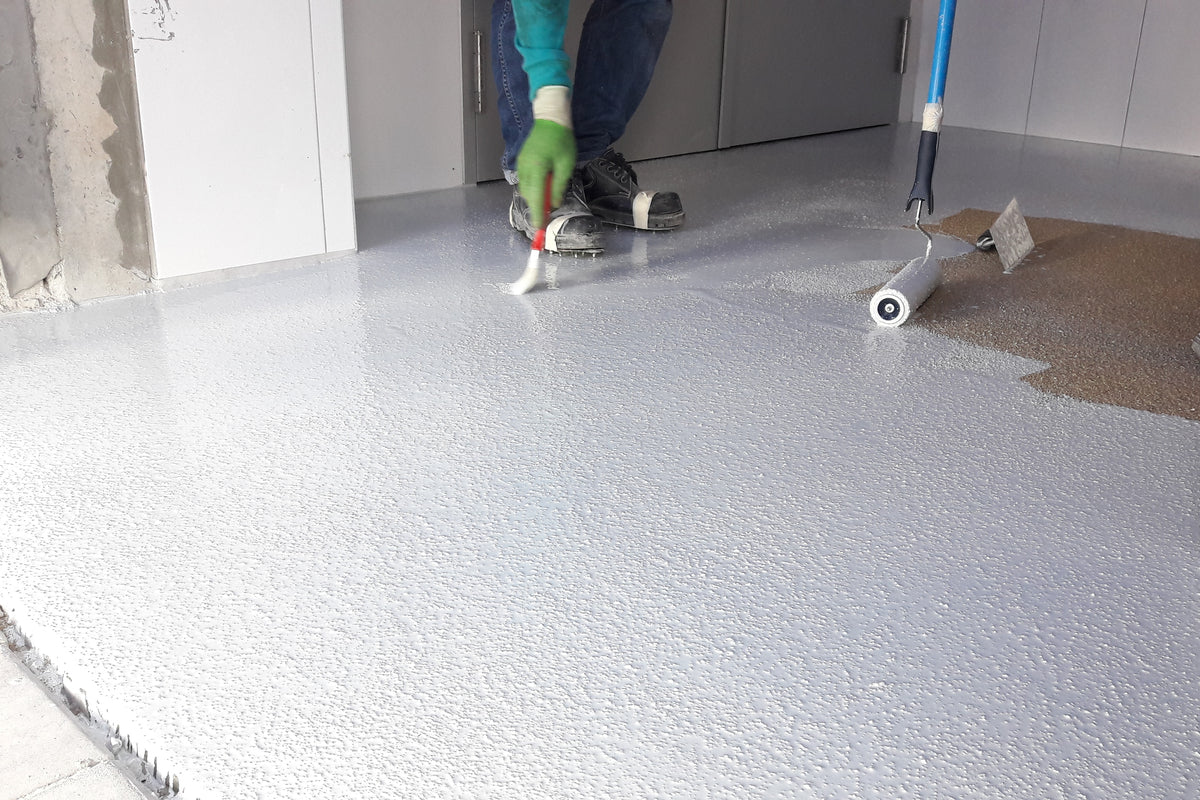
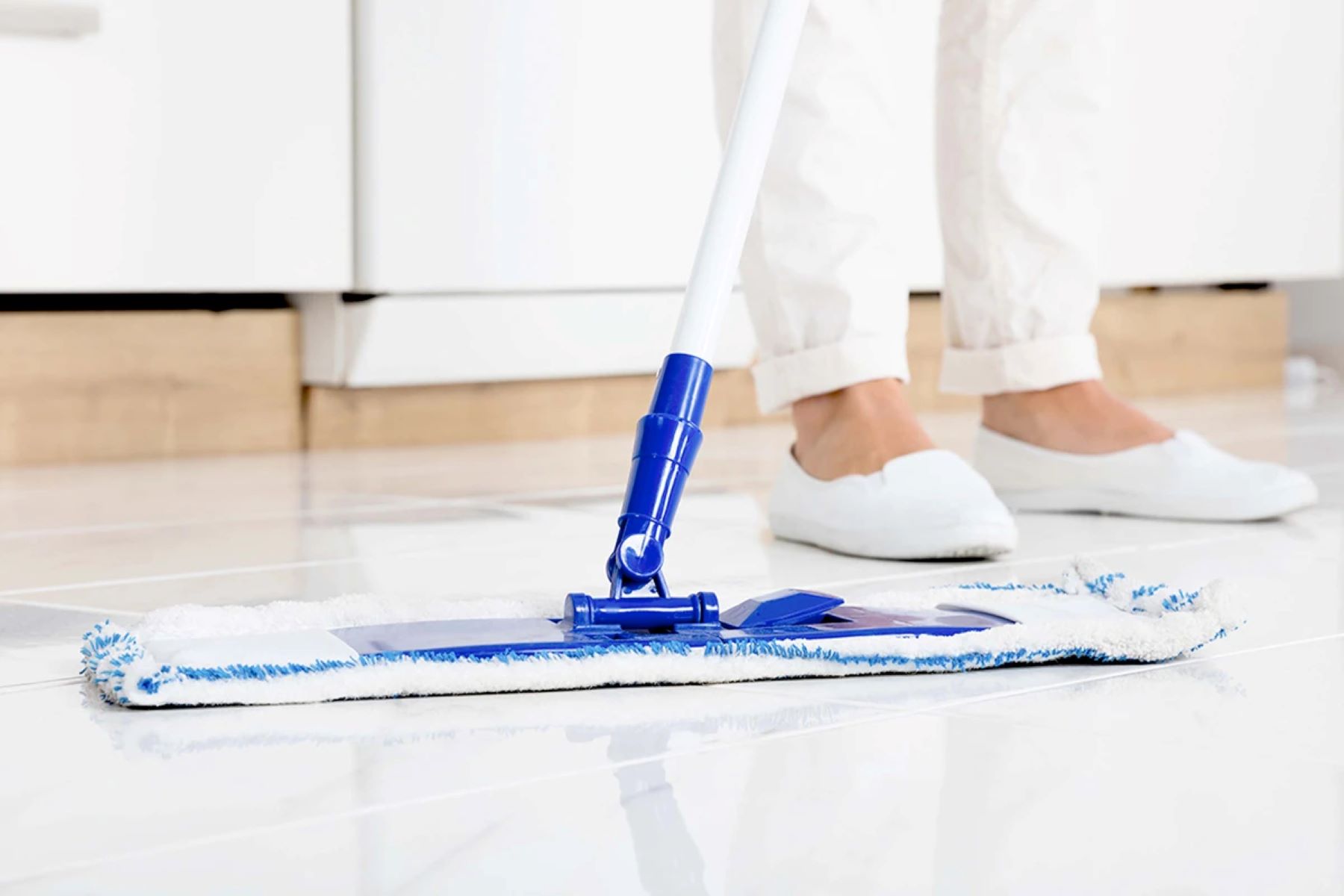
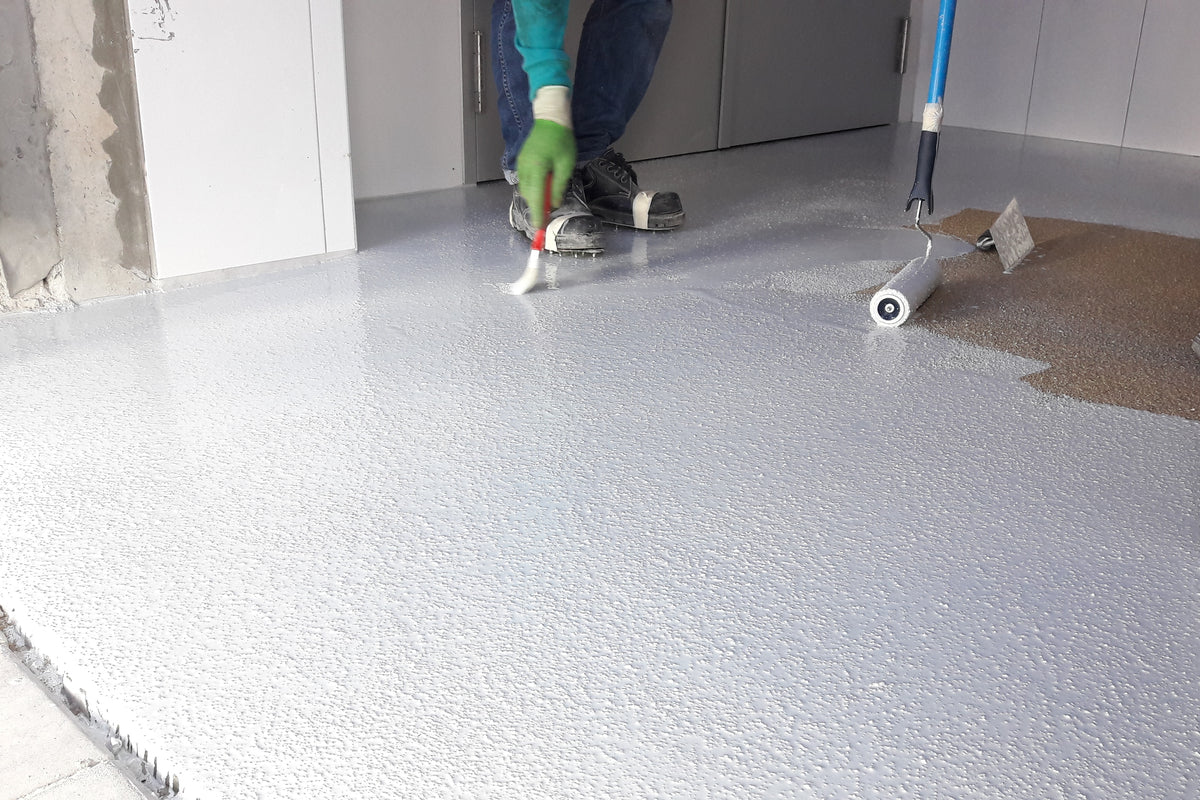
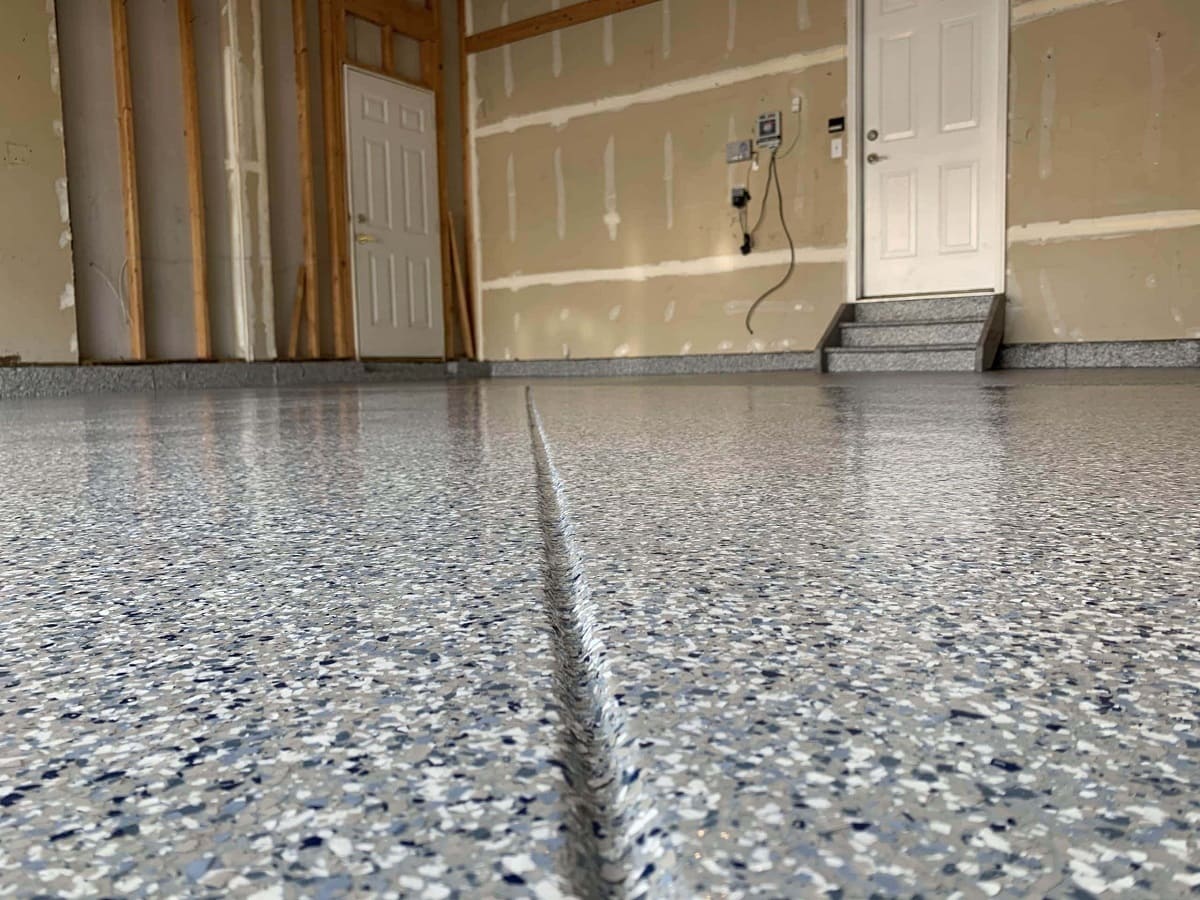
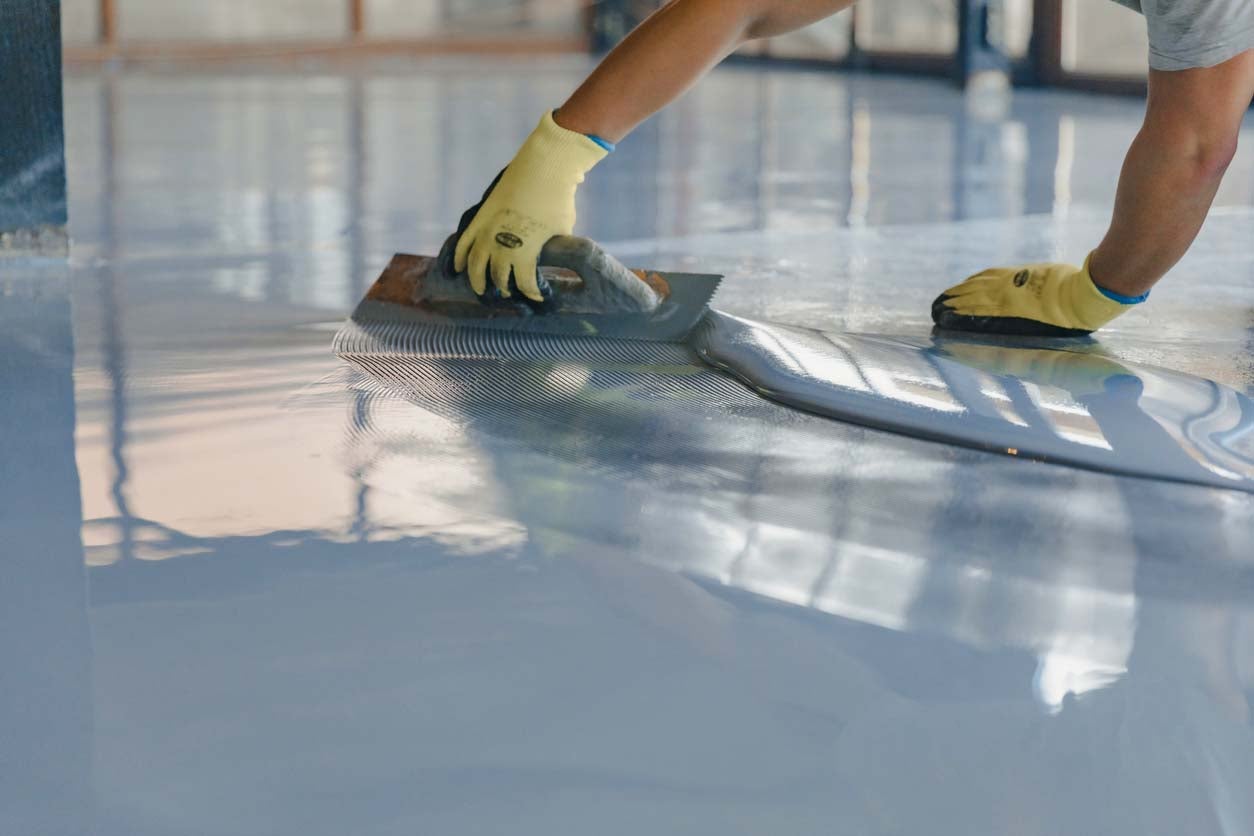
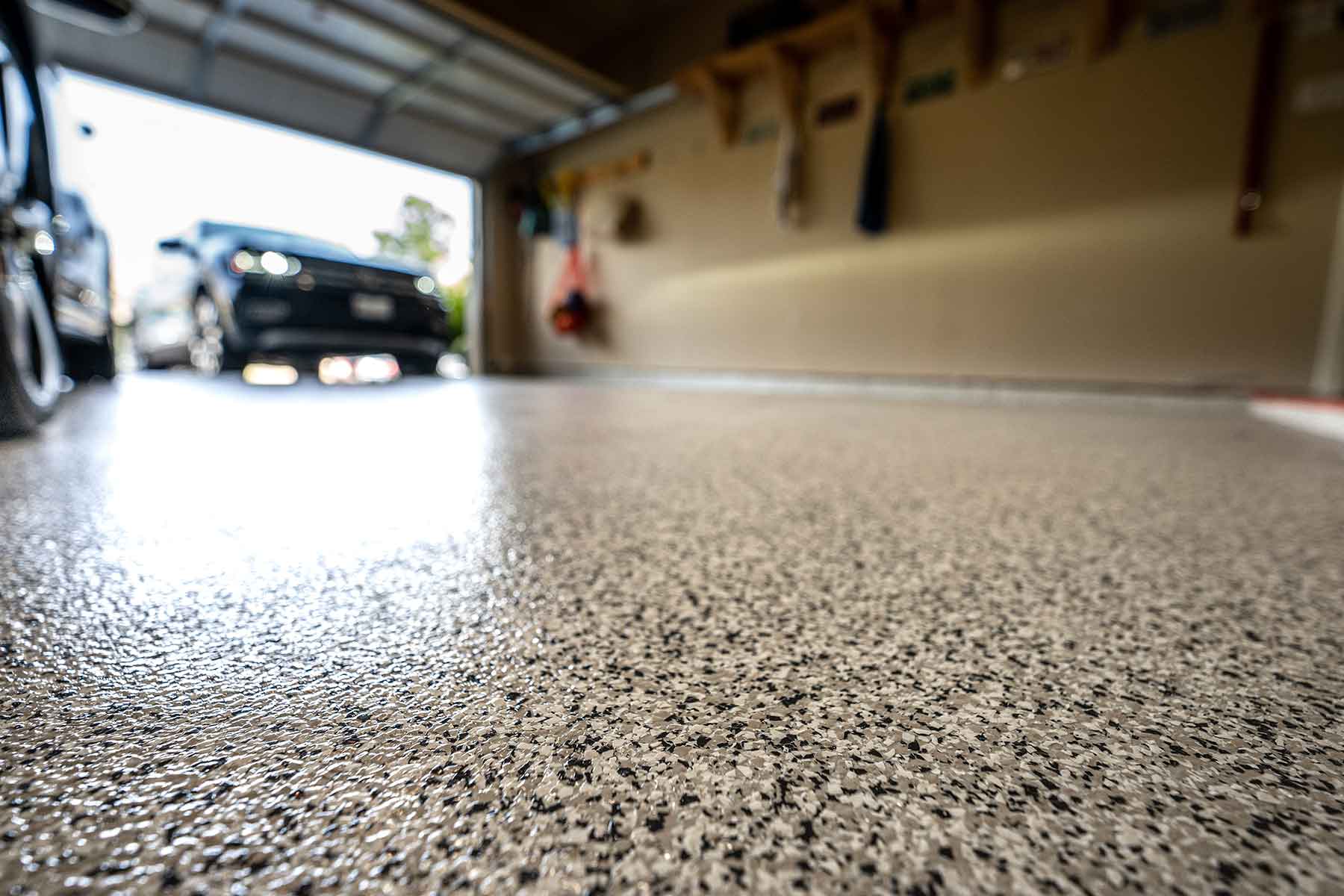
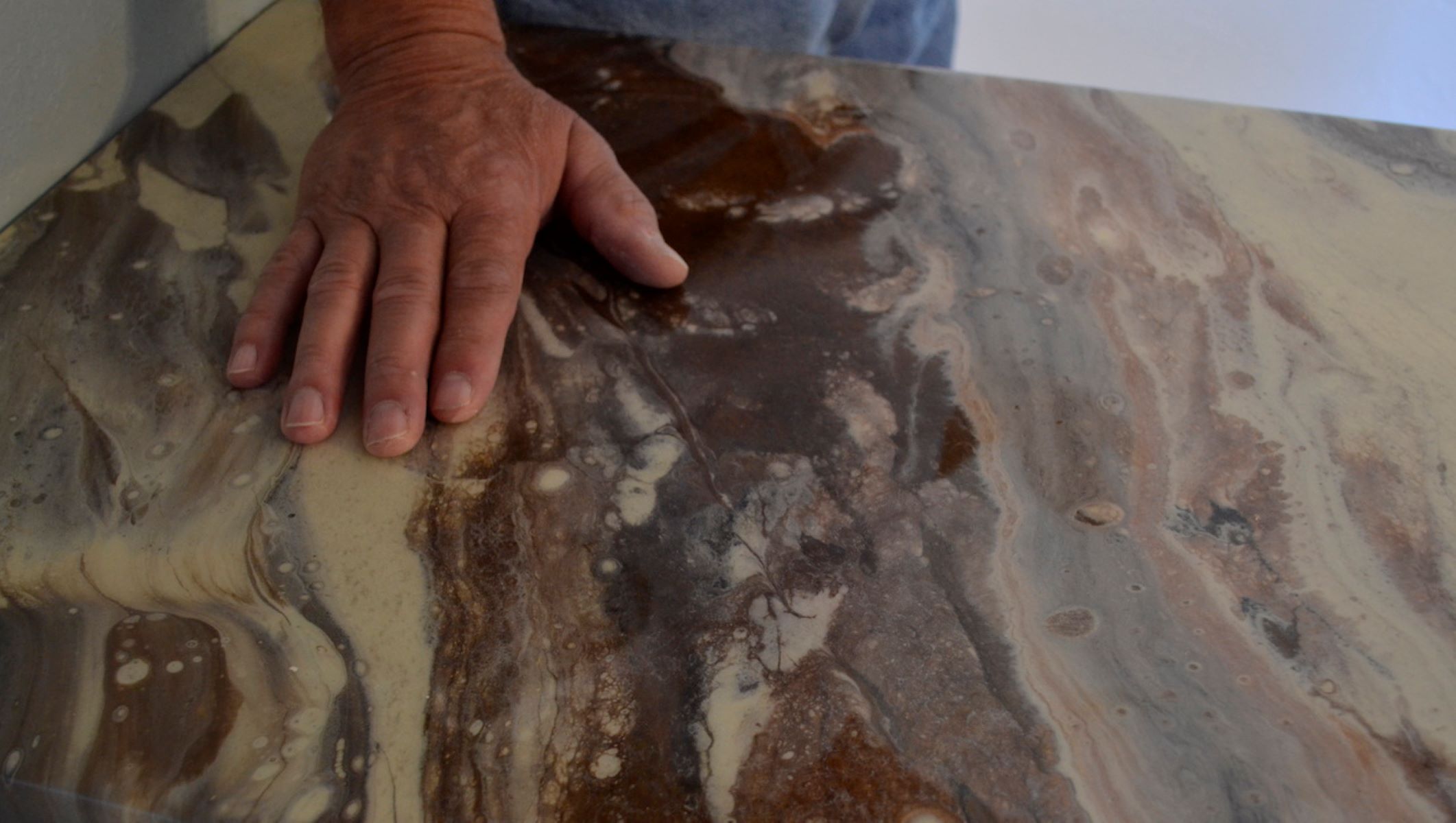
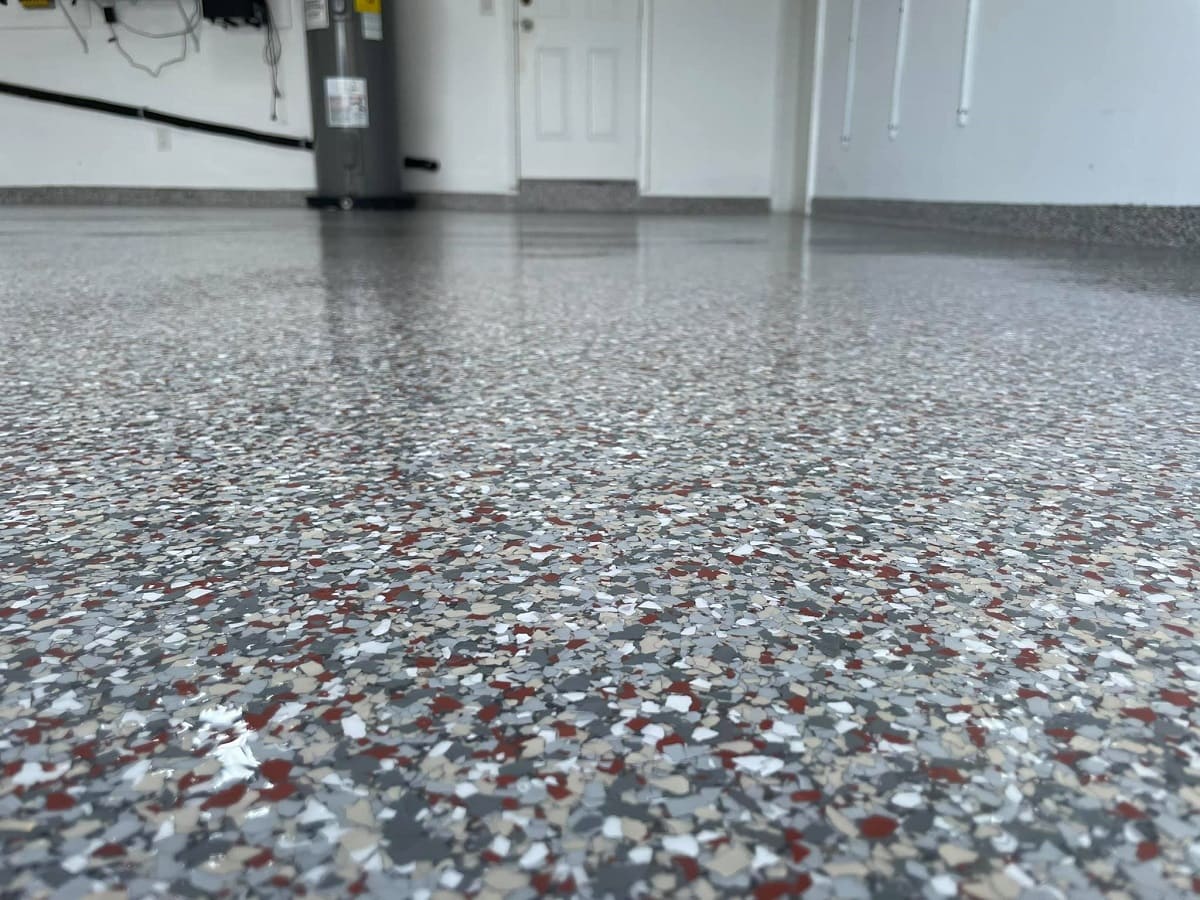

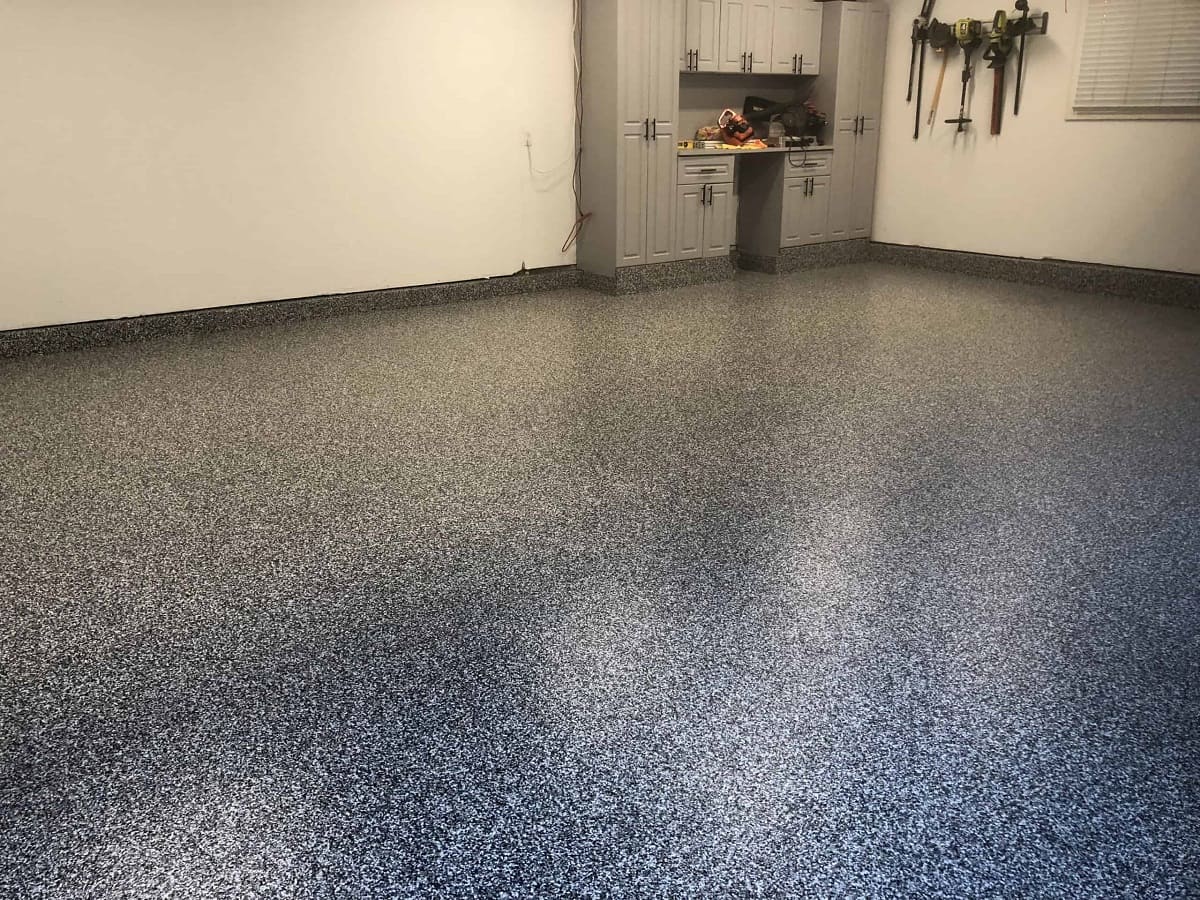
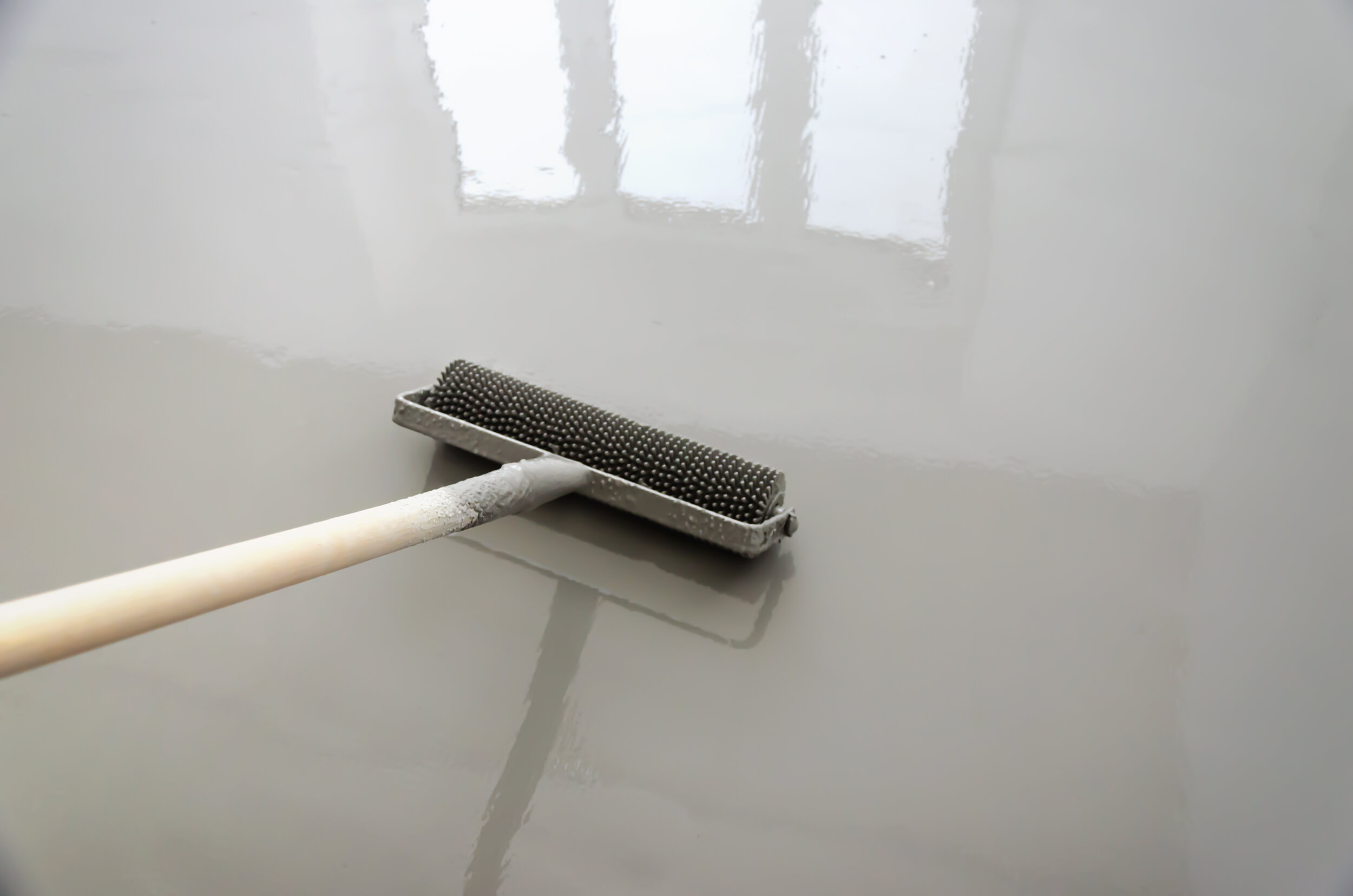
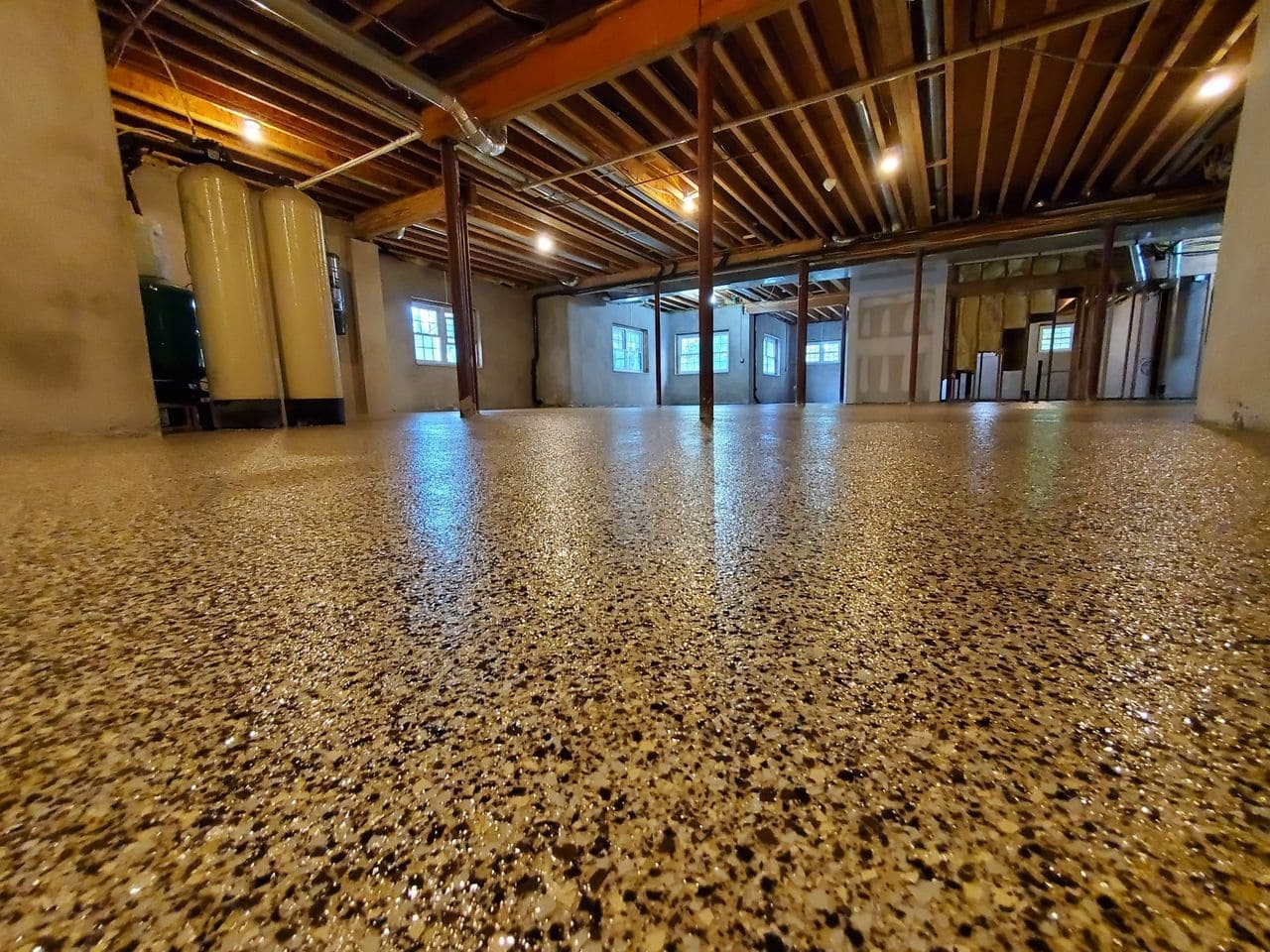
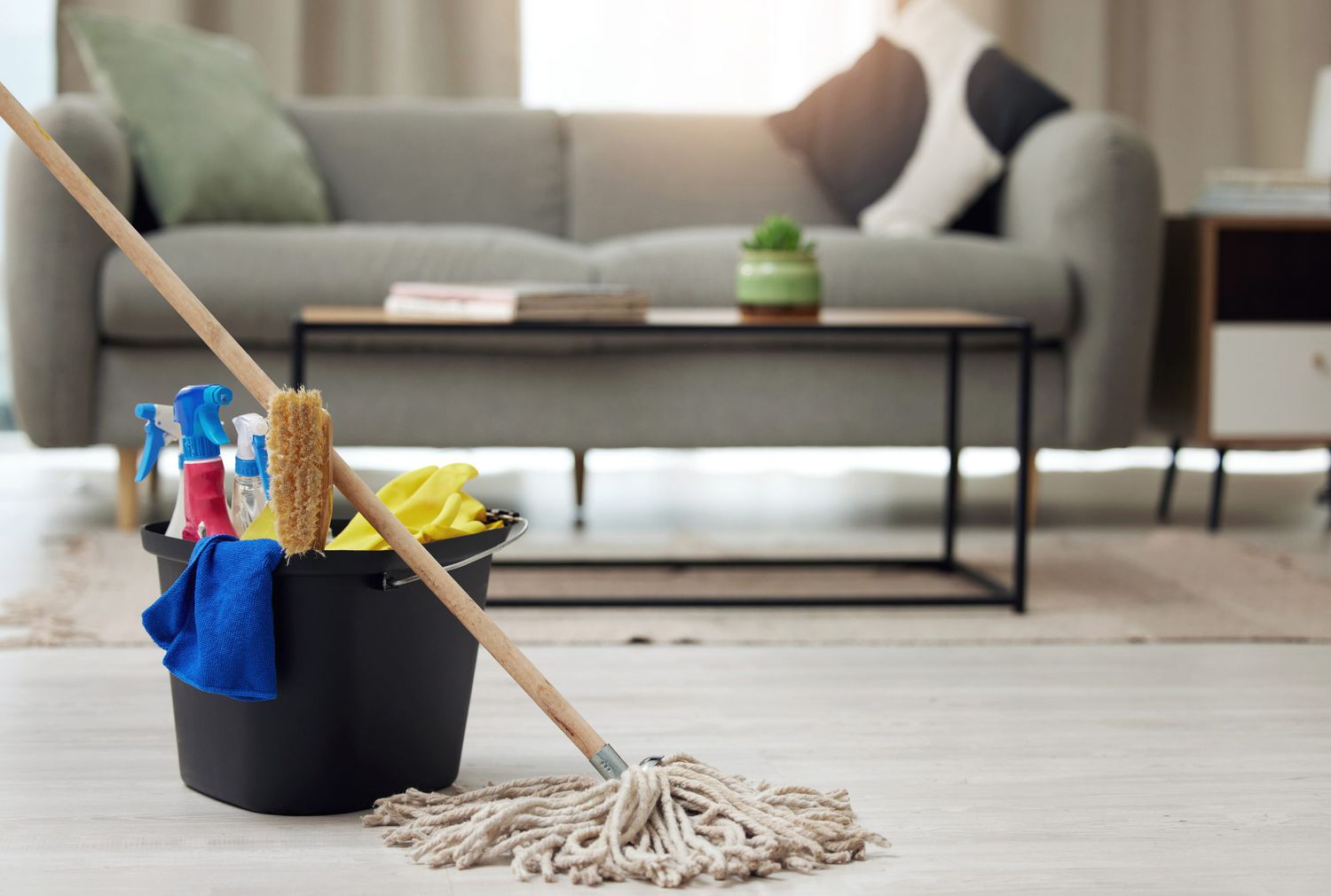
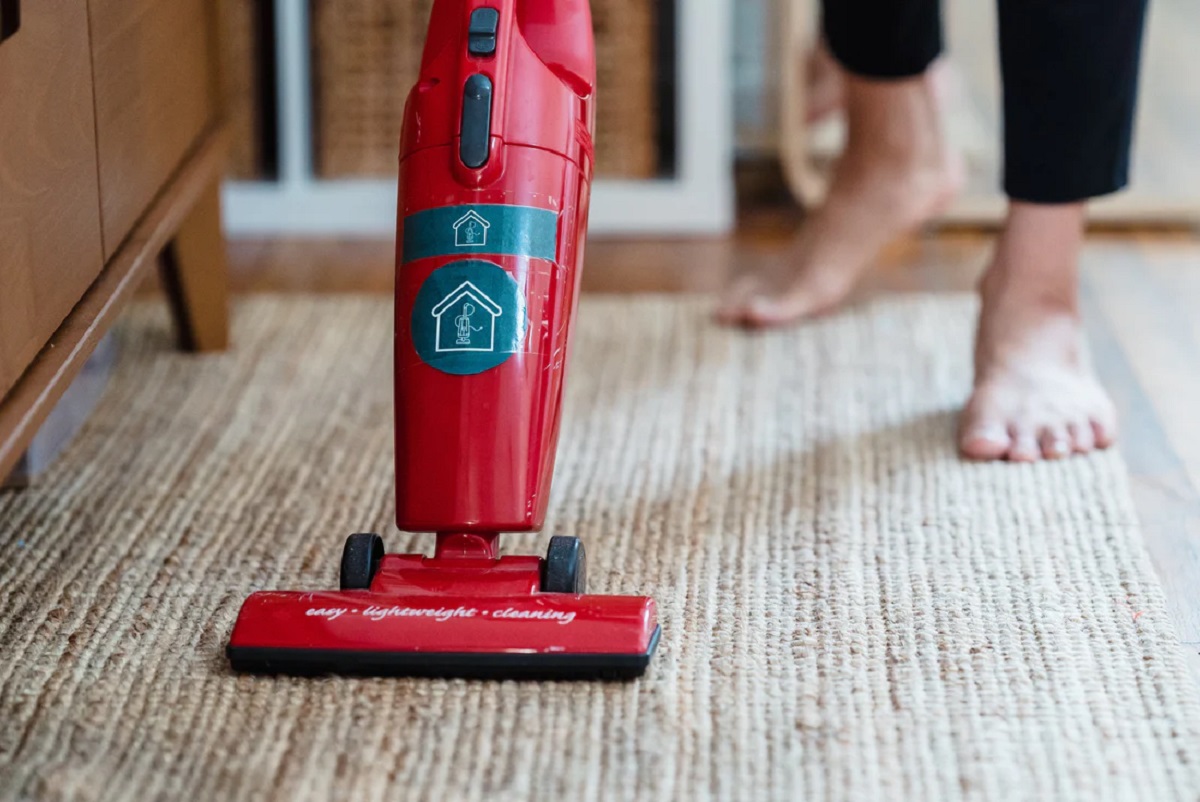

0 thoughts on “How To Clean Epoxy Floor”